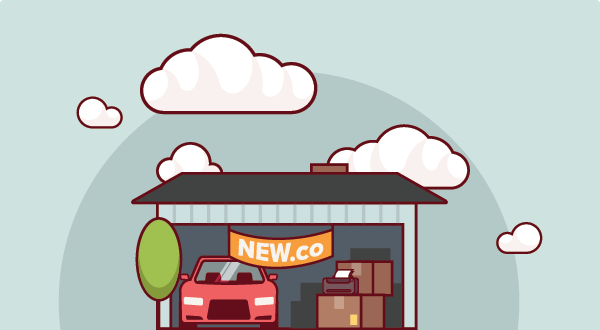Wil Schroter

Owning 100% of an asset is the same as owning 0% if it's never liquid.
Too often we get hung up on what percentage of a company we own, only to overlook the fact that our equity actually doesn't matter at all unless it's liquidated at some point.
In this case, we're specifically talking about ownership that requires a sale to have value, not two gals in a room splitting annual profits 50/50 (that percentage does matter in that case!).
Optimize For Probability Not Percentage
Part of where we get distracted is focusing so heavily on how much of the company we have instead of the probability that our ownership will even matter. The broken assumption here is that all probabilities of exit are constant, and the only variable is how much of the exit we'll share. That's not how this works at all.
Startup outcomes are fairly binary — we either exit or we don't. What we fail to realize, often because this is the only startup we've founded or worked for, is that by definition the probability that our startup will succeed and exit is damn near zero. Note that we didn't say "10% or less" — we said, "Damn near zero."
"Damn near zero" is a better way of thinking about probabilities because it underscores the vast asymmetry between those that exit and those that don't. If every startup that failed today got as much press as the one that sold, none of us would start companies! While we want to get a fair chunk of whatever we're building, we can't confuse that negotiation with the more realistic terms of ever making it liquid, to begin with.
Any Percentage Can Matter
The second thing we overlook is how life-changing nearly any amount of liquidated value can be. We're not even talking about "1% of the Facebook IPO," which made billionaires over and over, we're talking about something more along the lines of a $250k check, or if we're really stretching, a $25 million check.
When (and if) the money lands in our account, that's what's life-changing. If we knew for certain we could choose one startups outcome that left us with a million dollars and another that had 1% of the chance that could give us $100 million dollars, why wouldn't we choose the outcome that guarantees a life-changing moment versus the 99% of them that leave us with bupkiss?
Often these outcomes don't even require an exit per se, and if we're the Founder/owner just getting to a revenue distribution level that yields life-changing outcomes does the job just as well. In case we forgot, that's how most millionaires are made. So perhaps to increase our "odds" we look at how many different ways we could monetize our share, and not just bet the farm on the exit.
Time is a Critical Factor
While we're all worked up about probabilities and percentages, we should probably really be considering the most overlooked factor — time. Getting a tiny sliver of a company that's about to go public next year may be more important than getting half of the cap table of a startup that launched 9 seconds ago!
Depending on where we are in our careers and what we need to accomplish, time can be one of the most discerning factors of all. If it takes us 10 years to make a million dollars or 1 year to make $100k, with compounding investment incomes it's nearly the same outcome!
That's where we can actually do just as well with a startup that's throwing off strong profitability early on versus waiting for the long game of giant exit that's hard to predict in the future. We only have so many peak-earning years, so while we can't determine who will exit, we can determine how much time we have to play it out.
Regardless of the time factor, the point of liquidity remains — if it's not making dollars, then it's not making sense!
In Case You Missed It
Should We Focus on Profit or Growth? Just because we're a startup doesn't mean we are entitled to profit or growth — so what do we focus on when we really want both?
How Much Should I Be Working? (podcast). Wil and Ryan take a deep dive into the benefits of thinking quality and not quantity when it comes to your weekly punch card.
We Need a Strict Definition of Personal Success Every moment we spend pursuing an undefined goal is a complete waste of time — especially personal goals.
Find this article helpful?
This is just a small sample! Register to unlock our in-depth courses, hundreds of video courses, and a library of playbooks and articles to grow your startup fast. Let us Let us show you!
Submission confirms agreement to our Terms of Service and Privacy Policy.
Already a member? Login
Start a Membership to join the discussion.
Already a member? Login

its greate